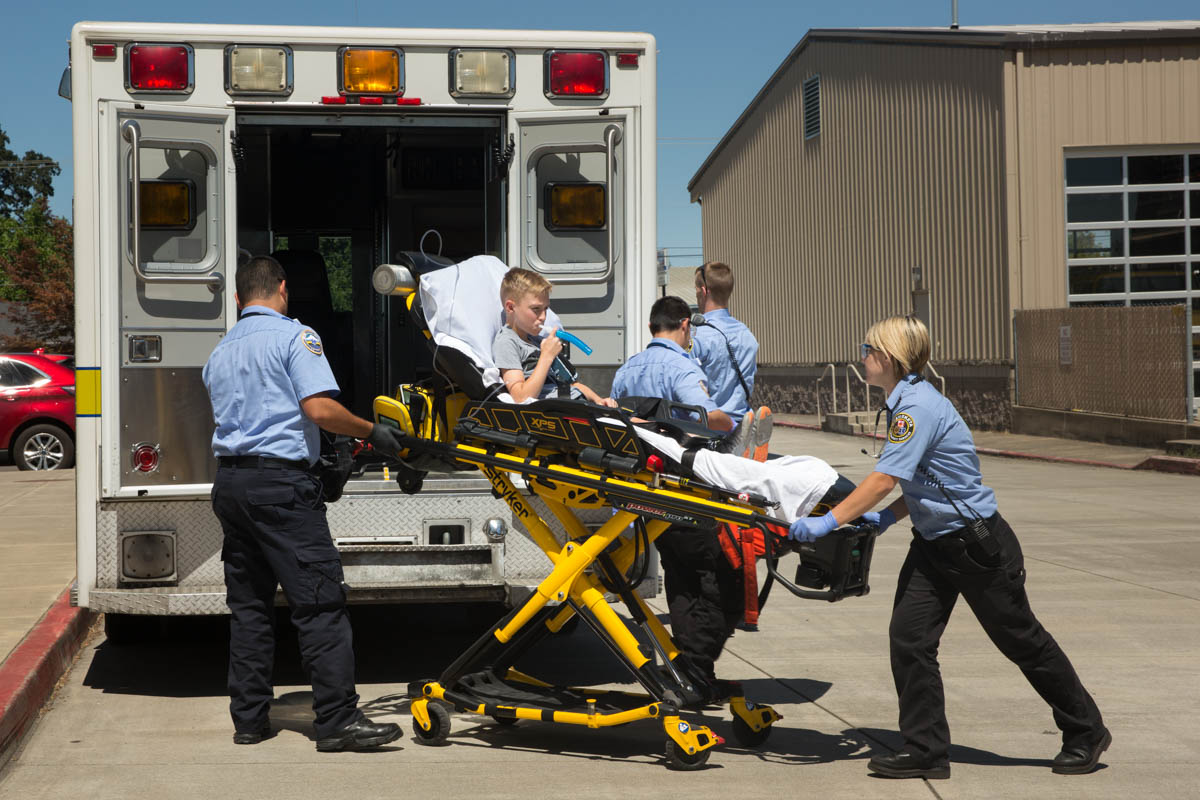| |
Mar 01, 2026
|
|
|
|
|
Catalog 2024-2025 [ARCHIVED CATALOG] Chemeketa Community College, Salem OR (curriculum@chemeketa.edu)
Emergency Medical Technology - Paramedic, Certificate
|
|
 Return to: Programs of Study Return to: Programs of Study

To prepare competent entry-level paramedics in the cognitive (knowledge), psychomotor (skills), and affective (behavior) learning domains through comprehensive education. This process will ensure that each candidate will be prepared for emergency responses and some of the most critical patient encounter with confidence and the ability to perform with an understanding of the current industry expectations.
Students completing this certificate should be able to:
- Perform complete and accurate patient assessments in a variety of settings, including laboratory and the clinical setting with hospital patients.
- Assess and treat appropriately a wide variety of airway and ventilation problems, in both the laboratory and clinical settings.
- Assess the need for and initiate intravenous therapy in both the laboratory and clinical settings.
- Differentiate between and among a wide variety of respiratory ailments, cardiac patient presentations, neurological patient presentations, behavioral patient assessments and acute abdominal complaints and apply appropriate interventions, both in the laboratory and clinical settings.
- Identify and interpret ECG rhythms and demonstrate appropriate treatment modalities.
- Determine appropriate medical therapies, including pharmacology, based on patient assessment, both simulated and actual patients and calculate drug dosages and administer medications.
- Perform complete and accurate patient assessments in a variety of settings, including laboratory and the clinical setting with hospital patients.
- Assess the need for and initiate intravenous therapy in both the laboratory and clinical settings.
- Assess and treat appropriately the patient experiencing an anaphylactic reaction, in both the laboratory and clinical settings.
- Differentiate between and among a wide variety of toxicological emergencies and apply recommended interventions, both in the laboratory and clinical settings.
- Identify and interpret ECG rhythms and use recommended treatment modalities.
- Differentiate between and among a wide variety of environmental emergencies; geriatric patient presentations; pediatric patient presentations; obstetric, gynecologic, and neonatal emergencies; and endocrine emergencies, and apply appropriate interventions, both in the laboratory and clinical settings.
- Assess the victim of trauma, differentiate between critical and non-critical injuries, and apply appropriate intervention and/or treatment.
- Differentiate between normal and abnormal ECG and capnography wave forms and apply appropriate interventions, both in the laboratory and clinical settings.
- Perform complete and accurate patient assessments in a variety of settings, including laboratory, simulation labs, verbal scenarios, and the clinical setting with hospital patients.
- Assess and accurately treat the patient experiencing a cardiac emergency.
- Assess and interpret patient data and apply basic legal knowledge of confidentiality, documentation, and reporting requirements.
- Demonstrate basic knowledge of research and evidence-based medicine and apply research review to patient care.
You may earn a certificate of completion by successfully completing the required 74 credit hours with a grade of “C” or better in all courses.
Are you looking to print a Degree Planner for this program? Click on located at the upper right corner of this page. located at the upper right corner of this page.
|
|
|
 Return to: Programs of Study Return to: Programs of Study
|
|